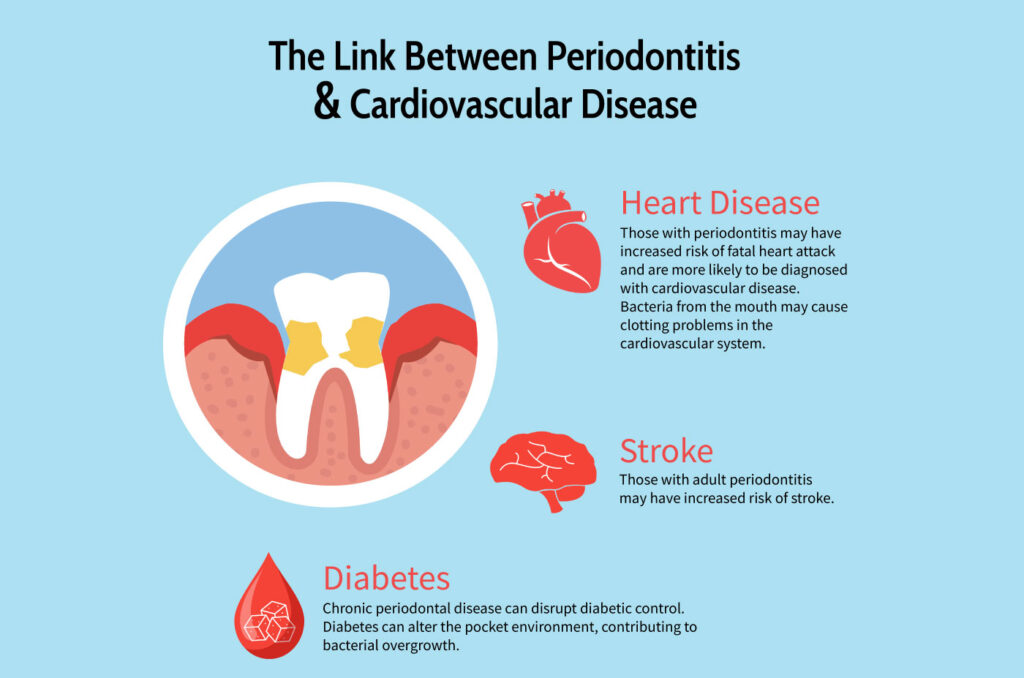Key Takeaways:
- Periodontal health is intricately linked to overall bodily health, particularly heart health.
- Maintaining good oral hygiene can prevent serious systemic diseases.
- Early diagnosis and treatment of periodontal disease are crucial for long-term health benefits.
Table of Contents:
- Introduction to Periodontal and Heart Health Connection
- The Science Behind the Link
- Impact on Other Health Conditions
- Importance of Early Detection
- Maintaining Good Oral Hygiene
- Professional Treatment Options
- Future Research Directions
Introduction to Periodontal and Heart Health Connection
It’s well-documented that oral health is a window into overall health, yet many remain unaware of the profound connection between periodontal health and cardiovascular well-being. A periodontist in Sarasota, FL, would concur that neglecting your gums can lead to more than just tooth loss. Studies have shown a link between heart disease and periodontal disease, highlighting the need to understand holistic health.
Far from being isolated, the health of our gums influences systemic conditions, potentially exacerbating chronic diseases. Thus, understanding this connection empowers individuals to take charge of their overall health through proactive dental care, fundamentally altering how we think about oral hygiene.
The Science Behind the Link
The science linking periodontal health and heart disease revolves around inflammation and bacteria. When gums are inflamed due to periodontal disease, they can release harmful bacteria into the bloodstream. According to research on heart health, these bacteria may then travel to the arteries in the heart, causing them to narrow—a condition known as atherosclerosis. This process increases the risk of heart attacks and strokes.
Moreover, inflammation in the mouth can lead to systemic inflammation, further straining cardiovascular health. Understanding these mechanisms helps underscore the importance of maintaining periodontal health as part of a comprehensive approach to preventing heart disease.
Impact on Other Health Conditions
Beyond heart disease, periodontal health impacts several other systemic conditions. Notably, there is an established connection with diabetes where inflammation may impair the body’s ability to regulate blood sugar. Conversely, high blood sugar can exacerbate gum disease, creating a vicious cycle.
Emerging evidence also links periodontal disease with respiratory diseases, osteoporosis, and even certain types of cancer. Regular dental check-ups and good gum health can have wide-ranging health implications, protecting against multiple chronic conditions.
Importance of Early Detection
Early detection of periodontal issues is crucial. Like most systemic diseases, early intervention can prevent more severe health outcomes. Regular dental visits allow for the timely identification of gum disease, enabling prompt treatment and minimizing potential complicating factors associated with heart disease and more.
Concentrating on preventative care can help people retain better general health and avoid future, more intrusive, and expensive operations. This approach reflects the broader trend towards preventative lifestyles, reducing the overall burden on healthcare systems.
Maintaining Good Oral Hygiene
Proper oral hygiene is foundational in preventing periodontal disease and its systemic implications. Simple daily practices such as brushing twice daily, flossing, and using antiseptic mouthwash can mitigate the risk of gum disease. Regular professional cleanings also play an integral role in removing plaque build-up in hard-to-reach areas, promoting healthier gums.
Incorporating these habits into daily routines may drastically reduce periodontal issues and health risks. Patients should be educated regarding the correct techniques and frequency of these actions for optimal results.
Professional Treatment Options
When periodontal disease progresses, professional treatment options may become necessary. Treatments might vary, from thorough cleaning techniques like scaling and root planing to more sophisticated interventions, such as periodontal surgery in extreme situations.
Collaboration with dental professionals ensures patients receive tailored treatment plans suited to their conditions. This effectively arrests disease progression and mitigates broader health implications. By engaging the assistance of medical professionals, patients can take advantage of a coordinated treatment strategy that attends to both oral and systemic health concerns.
Future Research Directions
Future research aims further to elucidate the links between oral health and systemic diseases, providing deeper insights into preventative measures and treatment modalities. Investigating the microbiome’s role in periodontal and systemic health is a promising study area with potential groundbreaking implications for approaching dental and general healthcare.
As research evolves, it will inform best practices in dental and medical disciplines, fostering integrated healthcare approaches that recognize and address the interplay between oral and overall health.


